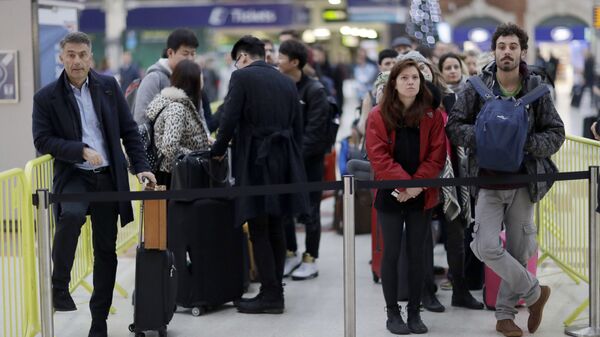UK rail fares increased an average of 2.7% starting from 2 January 2020. However, the rail industry says it is the third year in a row that average increases remained below the rate of inflation.
Rail companies have, for the third year in a row, held average fare increases below inflation at 2.7%.
— Rail Delivery Group (@RailDeliveryGrp) January 2, 2020
Whilst we know no one wants to pay more to travel, income from fares helps us to deliver crucial investment in new trains and extra services, improving journeys for customers. pic.twitter.com/9M1rpXKSei
The average rise in fares range from 0% for the Caledonian Sleeper to 3% for Chiltern Railways. The figure of inflation used by rail operators is the Retail Price Index (RPI), which was at 2.8% in July 2019. But Campaign for Better Transport, a commuter rights group, blasted the increases claiming that the RPI is a “discredited and obsolete statistic” and that the Consumer Price Index (CPI) would be “more appropriate” to use.
Rail Industry: 98 Pence of Every £1 of Rail Fare Pays For Operations of Trains
The rail industry’s trade association, the Rail Delivery Group (RDG), says that[pdf, p10] the UK government now subsidises the cost of running trains at 30%, compared to 43% from 2010 to 2011. As such the industry depends on fares to “almost completely” cover the costs of the day-to-day running of Britain’s railways.
The RDG also stated that 98% of rail fares go to operating the railways.
For every £1 paid in fares, 98p goes towards running and maintaining the railway.
— Rail Delivery Group (@RailDeliveryGrp) January 2, 2020
This means public and private capital can be invested in improvements, such as the 1,000 new and refurbished like new trains coming into service during 2020. https://t.co/CmsysnqIcD pic.twitter.com/6Qcx6qjSWI
Transport Watchdog: Less Than Half of Passengers Now Think They Get 'Value for Money'
Darren Shirley, Chief Executive of Campaign for Better Transport, said that if the “more appropriate” CPI had been used to set fare increases, regulated fares - including season tickets and standard returns - would have risen by 2.1 per cent today”.
"Rail passengers are tired of rising fares and broken promises. It’s time for a complete overhaul of the fares system and a fairer way to calculate future level. Only total reform will start to restore passengers’ faith in the rail network", our CEO @darrenshirley pic.twitter.com/JeOUtYiOUg
— Campaign for Better Transport (@CBTransport) January 2, 2020
47% of passengers thought they got value for money for the price of their ticket according to[pdf, p7, 12] the spring 2019 report from industry watchdog, Transport Focus. A figure which appears to have dropped since then:
💰 Just 1 in 3 commuters feel their train ticket represents good value for money
— Transport Focus (@TransportFocus) January 2, 2020
💥 Our head of communications @saramckinnon says it simply, performance is the issue.
👍 Passengers want a reliable train service for their money. pic.twitter.com/tW4verO0II
“We speak to thousands of passengers each year and we know that less than half feel they get value for money. After a year of pretty poor performance in some areas passengers just want a consistent day-to-day service they can rely on and a better chance of getting a seat,” David Sidebottom, director of Transport Focus, said commenting on the fare increase.
Sidebottom called for passengers to “make their voices heard” by calling on train operators to improve the quality of their services.
Ironically, having spoken earlier about today's rail fares hike on @BBCr4today and @BBCCambs and the need for the railway to focus harder on delivering a more punctual and reliable service, I head out to find my planned @northernassist has been cancelled. pic.twitter.com/ZK9MSk1voR
— David Sidebottom (@TF_davidS) January 2, 2020
Transport Focus has published a list of UK rail prices which is available here. The Campaign for Better Transport have also produced their own tables showing examples of season ticket costs for people travelling into London terminals and into regional stations.
On 31 December 2019 the RGD announced that by 2020 1,000 new carriages will be added across the country, with others upgraded. Among the benefits the new and upgraded trains will provide passengers with is live tracking of train times and information about which carriages have the most free seats. The industry say this is part of their overall commitment to add a total of 8,000 new trains by the mid-2020s.




